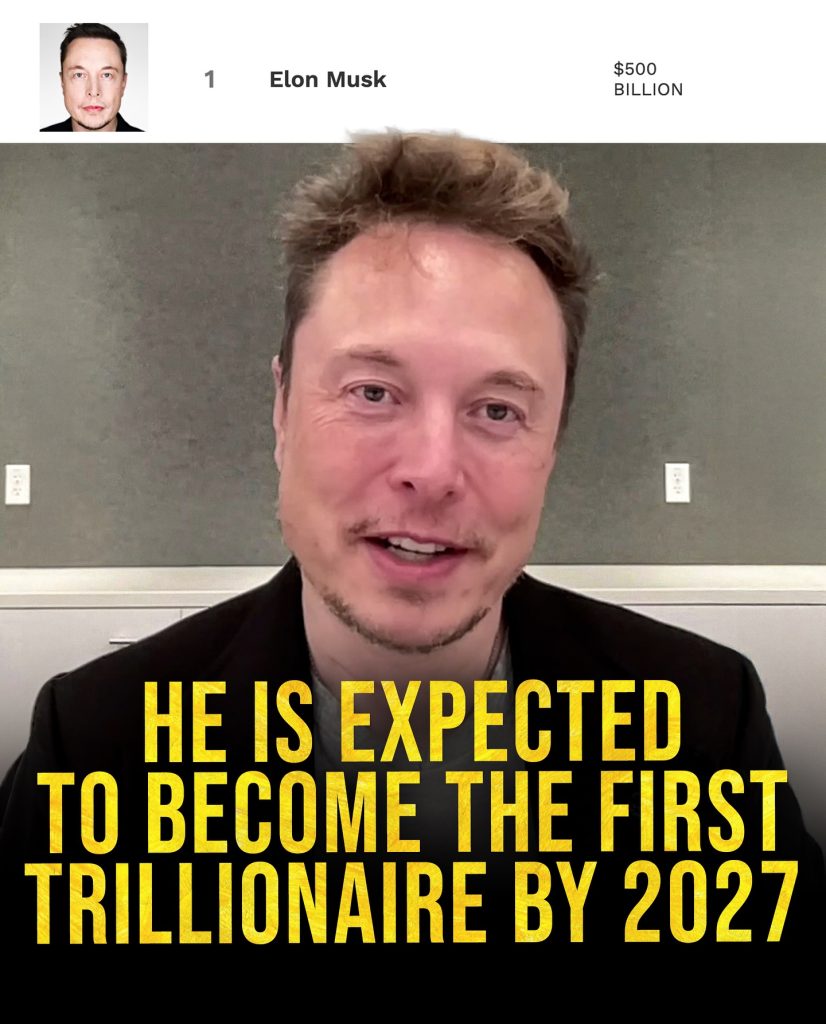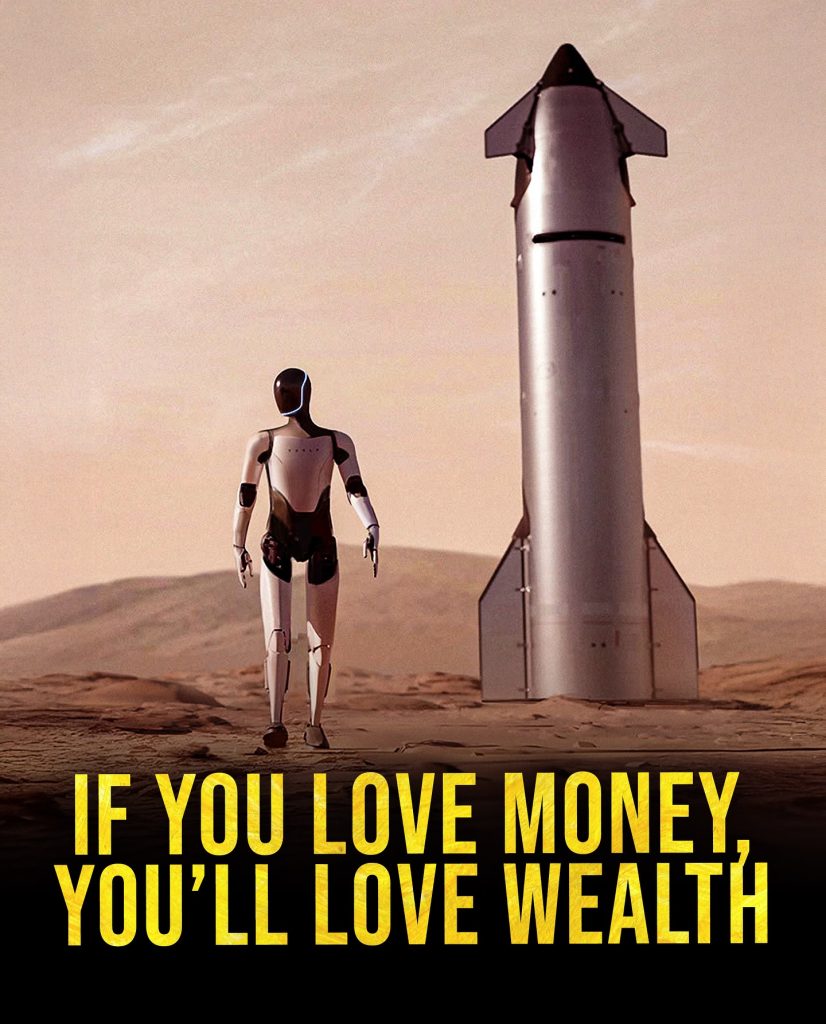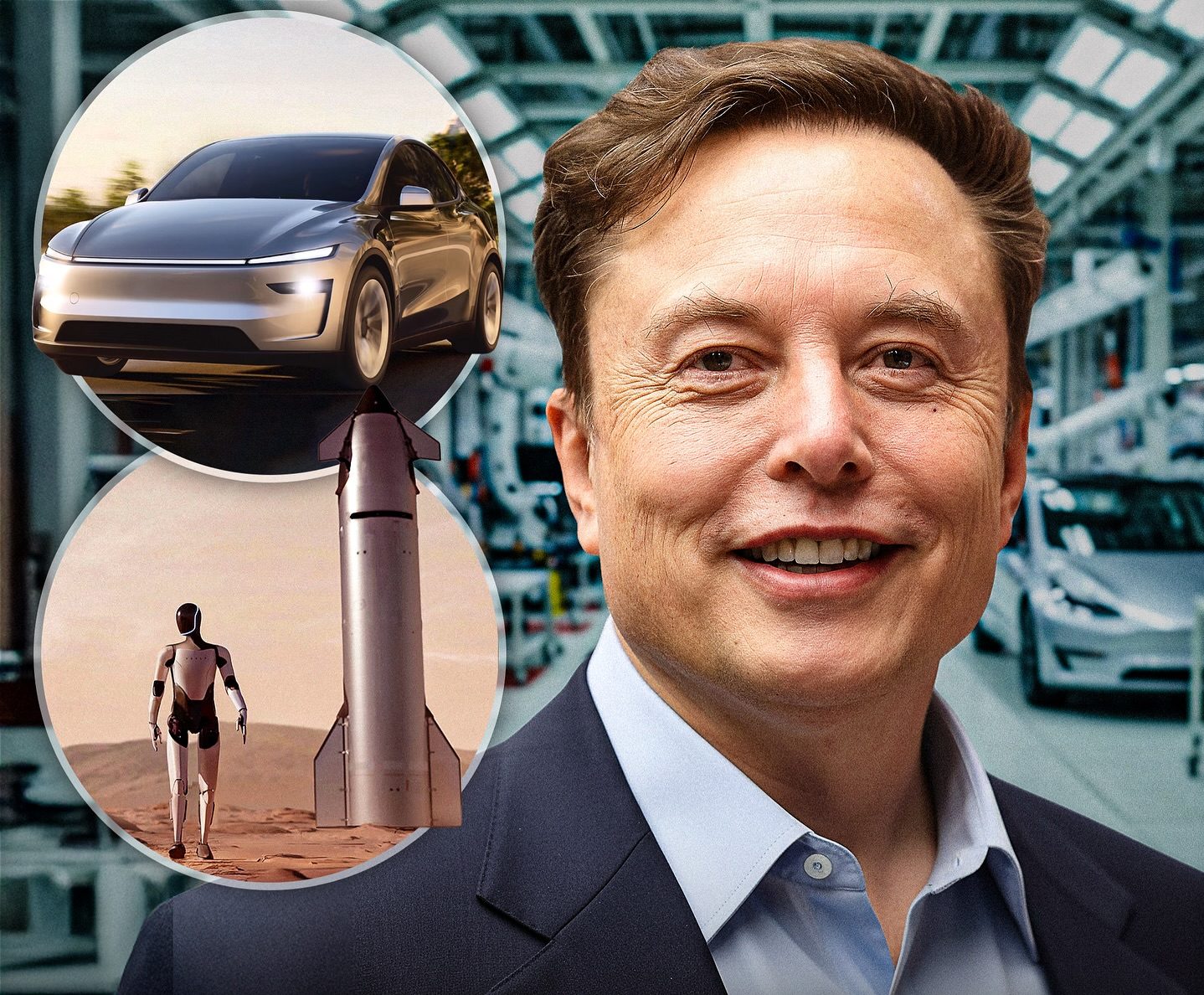Elon Musk Just Hit a Record $500 Billion Net Worth—And Analysts Say He Could Be the World’s First Trillionaire by 2027
The story of Elon Musk has always sounded like something between a Silicon Valley fairy tale and a science fiction novel. Today, it took on another chapter that almost feels unreal. According to Forbes’ real-time billionaire list, Musk just became the first person in history to be worth about $500 billion. That’s half a trillion dollars tied up mostly in Tesla, SpaceX, and his artificial intelligence company xAI. A single 4% jump in Tesla stock this week added roughly $9 billion to his fortune in one trading day, the kind of gain that entire nations dream of for their GDP. Some analysts are already projecting that, if his companies continue on their current trajectory, Musk could cross the unimaginable mark of $1 trillion by 2027.
What makes this milestone stand out isn’t just the number, but the speed. Musk’s wealth hasn’t been built through slow accumulation of assets over decades. Instead, it reflects the volatility and potential of modern equity markets, where one person’s net worth can swing tens of billions of dollars in a matter of hours. In Musk’s case, his fortune is tied to how the world values electric vehicles, private spaceflight, and artificial intelligence. Tesla alone, despite stiff competition and fluctuating demand, remains the crown jewel. It’s not just a car company anymore; it’s a symbol for the future of transportation and energy. When investors see Tesla as leading that charge, Musk’s net worth rises accordingly.
SpaceX adds another layer to the story. Once written off as a risky gamble, it is now valued at more than $180 billion privately, thanks to its dominance in reusable rocket technology and the growing reach of its Starlink satellite internet network. The Starship program, which Musk has pitched as humanity’s ticket to Mars, is still in development, but its promise has already boosted valuations. Analysts often say Musk’s biggest wealth driver isn’t just what exists now, but the future markets his companies might unlock—space tourism, interplanetary travel, and global broadband delivered from orbit.

Then there is xAI, his artificial intelligence venture, which Musk launched as a rival to the likes of OpenAI and Google DeepMind. While it is still young compared to Tesla or SpaceX, the AI market has exploded in the past three years. Investors see potential in Musk’s willingness to bet big and integrate AI into his existing ecosystems, from self-driving cars to humanoid robots like Tesla’s Optimus prototype. Each time Musk unveils a futuristic demo or hints at breakthroughs, the narrative around his wealth isn’t just about what he has, but what he might soon control.
Still, half a trillion dollars is hard to even picture. To put it into perspective, Musk’s net worth is greater than the GDP of most countries, including nations like Austria, Norway, or South Africa. If Musk were a country, he’d rank in the top 25 economies in the world. And if he does become a trillionaire by 2027, he would hold wealth larger than the annual economic output of nations like Saudi Arabia or the Netherlands. It raises both awe and debate—about income inequality, about the role of billionaires in shaping the future, and about how much power one person should hold in markets that affect millions.
What’s striking, though, is that Musk himself has never seemed particularly interested in the number for its own sake. In interviews, he often downplays personal wealth, emphasizing that most of it is “on paper,” tied up in shares he doesn’t sell. His focus, at least in his own words, remains on projects: making electric cars mainstream, colonizing Mars, building brain-machine interfaces, and advancing AI in ways he insists will remain safe for humanity. For supporters, this is what makes Musk unique. They see him as someone willing to plow enormous resources into ventures that feel impossible until they aren’t. For critics, it’s a reminder that so much of humanity’s future might be steered by the decisions of a single billionaire.

There’s also volatility in Musk’s empire. Tesla has faced periods of declining margins, recalls, and increasing competition from companies like BYD in China. SpaceX still needs to prove Starship can launch and land reliably before its Mars dreams come closer to reality. And xAI is up against deep-pocketed rivals in the AI arms race. Musk’s fortune is breathtaking, but it is also fragile in the sense that a downturn in Tesla’s market cap or a setback in SpaceX could erase tens of billions overnight. That’s the flip side of building wealth so quickly: it can fluctuate just as fast.
For now, though, Musk sits at the top, ahead of figures like Bernard Arnault of LVMH and Jeff Bezos of Amazon. He has recaptured the title of world’s richest person, but this time with a record-breaking milestone that sets him apart even in the rarefied air of billionaires. What happens next—whether Tesla scales autonomous driving, whether SpaceX lands humans on Mars, whether AI reshapes industries faster than expected—will determine if that trillionaire prediction becomes reality.
Beyond the financials, Musk’s story sparks a cultural fascination. He’s not just a CEO. He’s a figure who shows up in memes, in debates about free speech and technology ethics, and in conversations about climate change and space exploration. His wealth is a number, but his influence is lived: in the cars on the freeway, in the satellites orbiting above us, and in the discussions about what humanity should prioritize in the decades to come.
So when you read that Elon Musk is now worth $500 billion, it’s not just a headline about money. It’s about what people believe the future might look like, and who they think will build it. It’s about risk-taking, about the power of markets, and about the speed at which one person can become a symbol of both promise and controversy. Whether or not he becomes the world’s first trillionaire by 2027, Musk has already changed what we imagine is possible. And that, more than the number in his bank account, may end up being his most lasting legacy.

